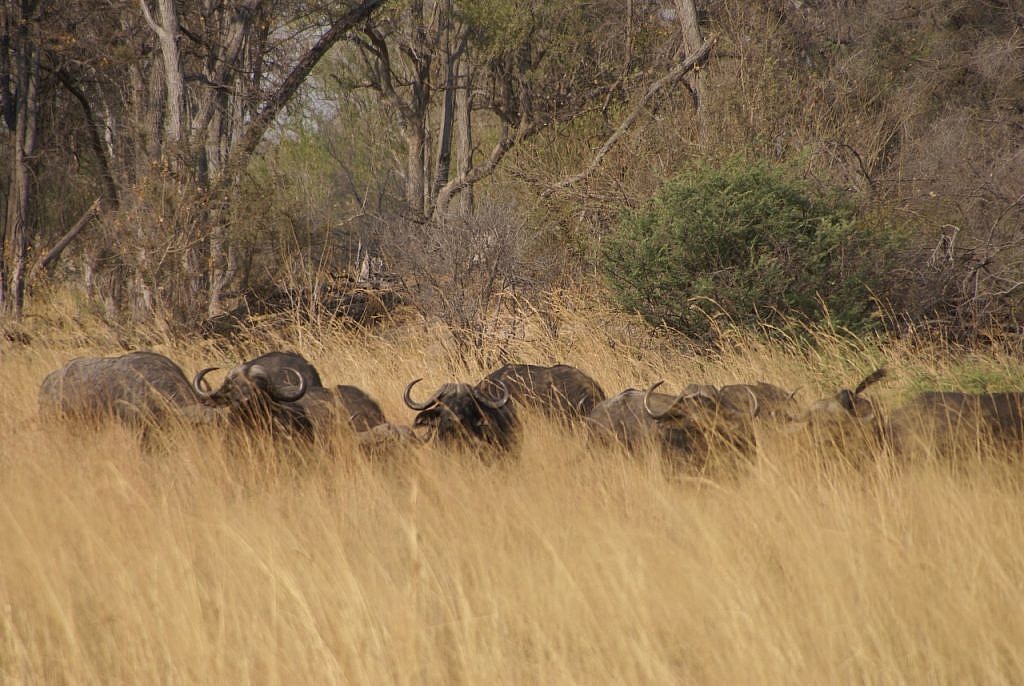
by David E. Petzal
Here are some helpful hints on how to avoid getting fatally hammered on a big-game hunt. My credentials: I have hunted big game since 1967, a lot, everywhere. I’ve hunted dangerous game since 1978. I’m still here, older than Joe Biden, who has never hunted big game at all.
***
Rule Number One: Be respectful of Mother Nature. In a little airport, I once saw a sign that read: “The sky is not inherently dangerous. It is, however, supremely intolerant of mistakes.” Now if you replaced “sky” with “wilderness,” it would perfectly sum up the Great Outdoors. Here in Maine, we have innumerable well-marked hiking trails through country that is not especially rough or perilous. Yet every year, there is a steady parade of people who vanish and then are found days or weeks later, dead. They fell, or had a medical problem, or simply got lost.
They assumed nothing could go wrong, and did not provide for emergencies. When the crisis was upon them, they almost certainly panicked. They didn’t take into account that if Ma Nature is going to do you in, she is likely to do it quickly. If you become hypothermic, for example, you have a window of only 30 minutes to do something effective about it. Longer than that, and your brain shuts down—if indeed it was functioning in the first place.
I carry three compasses, five means of starting a fire, a signaling mirror, a whistle, an insulated jacket, and a monster water- and windproof cagoule (hooded, knee-length anorak) in a daypack. Laugh if you will, but what’s going to save you?
***
Rule Number Two: Be mindful of whom you are hunting with. Years ago, I had the privilege of sharing a safari with the late Grits Gresham, who was a man of great common sense and good judgment. A third member of the safari was a guy who was a hysteric and, in fact, spent his last years in a mental institution. Grits took one look at how this yahoo functioned with a rifle in his hands and flatly refused to hunt with him.
I have walked away from at least four hunts because the participants had shit for brains (SFB), or the hunt was set up in such a way that someone was likely to be shot.
This rule extends beyond guns. A friend of mine once shared a tent with an individual who has the worst case of SFB I have ever found in a hunting camp. The tent employed a gas heater and, in the middle of the night, this oaf fiddled with it and succeeded in shutting down the flame, but left the gas on. Rather than saying something, he dragged his sleeping bag outside and left the two men sleeping inside to their fate. Luckily, one of them awakened, smelled gas, and shut the heater off.
Morons often walk away unscathed from the havoc they’ve caused, while bystanders pay the price.
***
Rule Number Three: Be mindful of who is piloting your small plane. If you’re flying in Alaska, be extremely mindful of who’s piloting your small plane. Small planes love to crash. They do it frequently. In Alaska, they do it all the time. Much of this is due to pilot error. If I boarded a small plane with a pilot who was much under 30, I would probably get off. This is because very young pilots have no more sense than very young automobile drivers, which is to say, none. (NB: If the pilot were female, I would make allowances for the fact that women develop sound judgment much earlier than men, and are less likely to suffer from attacks of testosterone dementia.)
I would also ask the pilot if he was instrument-rated. This means the individual is able to fly by reading the dials on his instrument panel when he can’t see anything, and stands at least a fighting chance of landing safely in storms and fog. If the answer is negative, or evasive, consider disembarking. You will no doubt be inconvenienced, and may cause some hard feelings. Weigh this against being found burned beyond recognition, or not found at all, or found after wolves have eaten your corpse, as happened to one gun writer I knew.
Here are four people who could tell you all about the effects of pilot error combined with bad weather: Audie Murphy, Medal of Honor winner and actor; John F. Kennedy, Jr., son of the 35th president; Patsy Cline, member of the Country Music Hall of Fame; and Rocky Marciano, undefeated heavyweight champion of the world. They could tell you, that is, if they had not died in small-plane crashes caused by bad weather and pilot error.
***
Rule Number Four: Listen to your inner coward. In Zambia, I once found myself sitting in the brush atop a kopje (pronounced “copy,”which is a rocky hill upon which cobras writhe) along with a professional hunter and two trackers. It was pitch dark, and we were encircled by a herd of perhaps 300 Cape buffalo who had drifted out of the woods at dusk and now had us surrounded. As if this were not bad enough, the herd had been poached hard, and was in a worse mood than usual.
